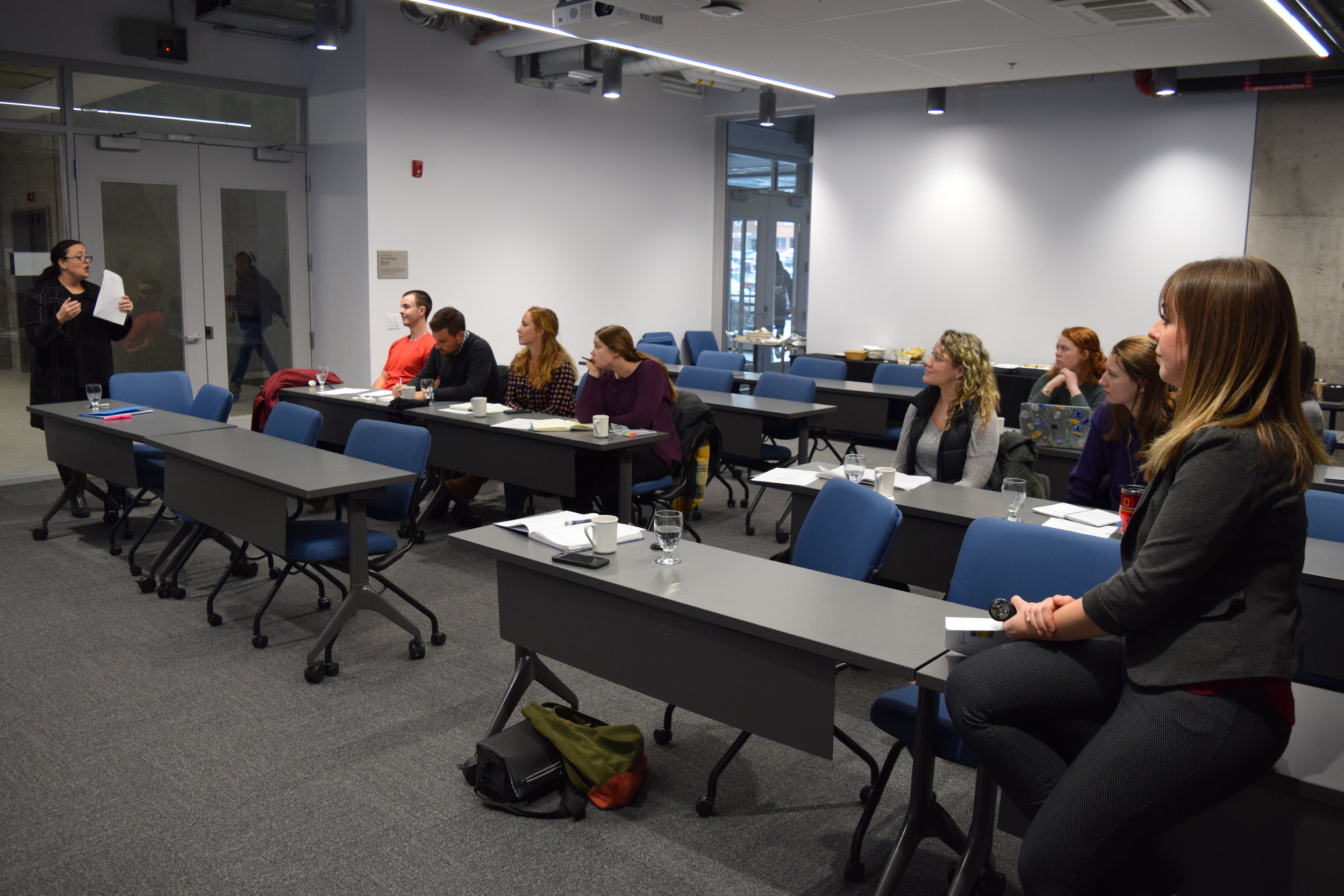Trainees and presenters in front of the Emera IDEA building (l-r: Aidan Van Heyst, Nicole Bell, David Foster, Baillie Holmes, Stephanie Coady (Emera), Caitlin McCavour, Mary Jenkins (Emera), Mike Hamilton, and Heather McGuire).
Some of the core values of the ASPIRE program were reflected in this week’s seminar: partnership with industry and encouragement of professionalism in our trainees. The new Emera IDEA building on Sexton campus stands on a foundation of partnership between academics and industry, so it was a perfect place to host Mary Jenkins and Stephanie Coady from Emera’s Talent Acquisition team. With more than 30 combined years of experience, they had lots of knowledge to share with our trainees about standing out among other candidates for jobs. They discussed some significant numbers for the trainees to remember:
40 seconds
On average, a recruiter spends 40 seconds reviewing a resume and cover letter. Mary shared tips for building different types of resumes and making a positive impression in those 40 seconds. We saw good and bad examples of resumes and talked about resume etiquette (“there’s a place and time for central alignment in a document, but your resume is not it”).
7 seconds
An interviewer forms a first impression of a candidate within 7 seconds. Arriving to an interview early, well-dressed, and composed makes a huge difference.
30 seconds
A classic interview question is “tell me about yourself”, and an appropriate answer to that question is about 30 seconds long. The three things that should be covered in that 30 second “elevator pitch” are your background, your career goals, and how the company you’re interested aligns with those career goals. Trainees were given some time to reflect and come up with their 6-8 strong points and then some chose to share their pitches with the group.
30 days
Stephanie told us that according to the research, the first 30 days in a job establishes your trajectory for the rest of your time in that position. Since all of the ASPIRE trainees will be doing 4-9 month internships in industry, it will be important for trainees to maximize those first 30 days. Trainees were encouraged to ask questions, show initiative, ask more questions, request feedback, keep track of the work they will be doing and the things they learn, and set goals.
The seminar was engaging and there were lots of questions from the trainees and discussions flowing from those questions.
The industrial internship is part of our core commitment to NSERC. The wisdom shared with us this week will help our trainees to succeed when they are hosted by one of our industrial partners later in their graduate studies. We look forward to continuing to partner with industry in our region for informational sessions, networking events, and internships.





